In personal injury law, commercial vehicle accident claims present some of the most complex and high-stakes litigation scenarios. Commercial accident cases present several legal options, each with key considerations that must be carefully evaluated. These cases often involve serious injuries, substantial insurance policies, and multiple parties with competing interests.
For attorneys handling these cases, one of the most important strategic decisions is whether to settle or pursue litigation. Quite simply, when it comes to commercial accident cases settlement, understanding the fundamentals behind a settlement vs litigation analysis is crucial.
There are several factors and key considerations that attorneys must weigh to make informed decisions about commercial accident cases settlement (as opposed to litigation). From assessing liability and damages to understanding the motivations of insurers and defendants, we’ll explore some of the important foundational considerations that attorneys should evaluate when attempting to maximize compensation for clients.
Why Commercial Vehicle Accident Cases and Personal Injury Cases Require a Unique Approach
Unlike ordinary car accident settlement issues, commercial accident cases settlement involves added layers of legal and logistical complexity. The defendants are often companies or corporate entities that have resources and reputations to protect. Analyzing the defendant’s actions is crucial in establishing liability in these cases. The vehicles themselves are governed by extensive federal and state regulations, and the injuries involved tend to be more severe.
This makes the decision to settle or litigate more than just a financial calculation. It becomes a reputational, tactical, and evidentiary decision that must account for long-term client outcomes and the strength of the case at hand. Given this complexity, seeking professional legal guidance from an experienced lawyer is essential to effectively navigate the legal process and protect your interests.
Key Indicators That a Fair Settlement May Be the Right Path
There are several situations where pursuing a commercial accident cases settlement may serve the client’s best interests. Most personal injury cases and personal injury claims are resolved through settlement rather than trial. Knowing how to recognize these signs can help attorneys avoid unnecessary litigation, resolve disputes efficiently, and secure timely compensation.
The Defense Admits Liability Early
If the commercial driver or their employer admits fault soon after the accident, it can remove a major hurdle in the litigation process. In such cases, the conversation turns more quickly toward damages, which may streamline negotiations.
When liability is not in dispute, and the defense shows interest in resolving the matter quickly, a well-prepared demand package supported by medical records, expert reports, and clear economic loss calculations can yield favorable settlements. Additionally, a well-crafted demand letter outlining the legal basis for the claim can initiate effective settlement negotiations.
The Client Has Immediate Financial Needs
Severe injuries often leave clients out of work and facing medical bills they cannot pay. Even if a trial could result in a larger award, clients may not be in a position to wait months or years for a final judgment. If a fair offer is on the table, settlement may provide a more practical resolution.
In such cases, attorneys must communicate the risks and timelines of litigation clearly. When appropriate, negotiating structured settlements or upfront lump sums can help address clients’ short-term financial hardships. Attorneys often work on a contingency fee basis, which means clients do not pay legal fees unless they win their case, reducing financial risk for those with immediate needs. Settlement can also help clients avoid other expenses associated with prolonged litigation, such as ongoing attorney fees and related costs.
Strong Documentation and Expert Opinions Back the Damages
When a case includes extensive documentation (such as police reports, black box data, independent medical examinations, and vocational rehabilitation reports), it signals that damages are well-supported and likely to be persuasive. Strong evidence can streamline the settlement process and negotiation process, making it easier to reach an agreement outside the courtroom.
Well-prepared cases that offer a clear picture of damages often result in insurance adjusters taking settlement negotiations seriously. This can lead to higher offers, an earlier resolution, and a favorable settlement amount.
When to Push for Litigation
Despite the advantages of settlement, there are situations where litigation is necessary, either to compel a fair resolution or to establish liability that the defense refuses to accept. In such cases, attorneys may need to file a lawsuit and submit a formal complaint to initiate a personal injury lawsuit. Attorneys should recognize these scenarios and prepare accordingly, keeping in mind that litigation carries the risk of uncertain outcomes and that a lawsuit takes significant time and resources.
Liability is Disputed Without Just Cause
Some commercial vehicle defendants deny liability despite clear evidence to the contrary. This could be due to internal corporate politics, lack of oversight, or an attempt to reduce exposure. In some cases, litigation becomes necessary when an insurance company denies a claim, even when the facts support your client. When the defense refuses to make a fair offer, filing suit is often the only way to recover compensation and move the case forward.
Litigation also opens the door to formal discovery, which may uncover damaging evidence such as maintenance logs, driver histories, or surveillance footage. These materials can strengthen your case and encourage the defense to settle mid-trial or during discovery.
The Defense Is Lowballing Due to Complex Damages
Cases involving traumatic brain injuries, psychological harm, or loss of future earning capacity often meet resistance during negotiations. Defense teams may claim that these losses are speculative or inflated. Pain and suffering, emotional distress, and physical pain are also frequently contested in settlement negotiations, as insurers may undervalue these non-economic damages.
Rather than accept an insufficient offer, filing suit and presenting your damages through expert testimony can lead to more accurate valuations. Juries are often more sympathetic to plaintiffs who appear visibly impaired or who can clearly articulate their suffering, and pursuing litigation can result in higher compensation or even significantly higher compensation compared to initial settlement offers.
The Defendant Is a Repeat Offender or a High-Profile Business
If the defendant has a history of accidents, regulatory violations, or safety complaints, trial may offer an opportunity to expose a pattern of negligence. Catastrophic injury cases and wrongful death cases often require litigation to achieve justice, as the damages involved and the complexity of these claims demand thorough legal action. This can create pressure for a settlement or, alternatively, lead to a punitive damages award at trial.
Similarly, when the defendant is a high-profile company with a strong public brand, litigation carries significant reputational risk for them. This risk can be leveraged into stronger pre-trial settlements or can be used to advocate for systemic safety changes beyond the individual case. For commercial accident cases, wrongful death, and catastrophic injury cases, settlement vs litigation analyses may lean heavily on this aspect if the employer is a high-profile one. Determining the best path or path forward depends on the specifics of the case and the defendant’s profile.
Timing Considerations: When to Pull the Trigger
Choosing between settlement and litigation is not always a one-time decision. In most cases, attorneys must reevaluate as the case evolves. Consulting a personal injury lawyer or personal injury attorneys at this stage can help clients make an informed decision about whether to settle or proceed to trial.
Early settlement may make sense when the case is well-documented, the defense is cooperative, and the client has immediate needs. However, if negotiations stall or if new information emerges (such as misconduct, fabrication, or additional injuries), litigation can offer the leverage needed to push the case forward.
Depositions are often a key inflection point. If the defendant’s representatives perform poorly or contradict documented evidence, this can increase settlement value or improve jury appeal. Personal injury lawyers play a key role in guiding clients to make informed decisions at each stage, and attorneys should always prepare their own clients thoroughly and approach depositions as a critical opportunity to shape the settlement discussion.
Understanding the Role of the Insurance Company
Insurance carriers play an outsized role in determining whether a commercial accident case will settle. Insurance companies are central to the claims process in truck accidents and truck accident settlements, as they investigate, negotiate, and ultimately decide on settlement offers. Their adjusters evaluate risk based on three major factors:
- Likelihood of liability
- Value of claimed damages
- Public relations or reputational risks
Experienced attorneys know how to frame their cases in terms that speak to these priorities. For example, showing that the driver had prior citations or that the company failed to follow maintenance protocols increases the perceived exposure.
Likewise, a plaintiff with sympathetic injuries who is well-spoken and appears credible is likely to be viewed as a risk if presented to a jury. Truck accident cases often involve significant property damage, medical expenses, lost income, and other related costs, all of which contribute to the overall financial losses considered during truck accident settlement negotiations.
Strategies to Strengthen Either Approach
Whether you pursue settlement or litigation, certain strategies can improve your client’s outcomes in commercial vehicle accident cases. A settlement agreement is a legally binding resolution that can provide a fair settlement and fair compensation to the injured party.
Prepare for Trial from Day One
Even if your goal is to settle, preparing your case as though it will go to trial increases its value. This includes gathering comprehensive records, hiring necessary experts, and identifying weaknesses in the defense early. When the opposing counsel sees that you are willing and able to try the case, they are more likely to offer fair terms.
Quantify Damages With Precision
Insurance adjusters and defense counsel are more likely to negotiate in good faith when presented with well-organized damages. Use spreadsheets to demonstrate lost wages, calculate long-term care costs, and summarize economic impacts with clarity. Attach supporting evidence and expert reports when necessary.
Highlight the Risks of a Trial for the Defendant
Frame your narrative around what a jury might think if presented with the evidence. Focus on the employer’s safety practices, the severity of the plaintiff’s injuries, and any inconsistencies in the defense’s story. When possible, tie these risks to reputational damage or potential punitive exposure.
Special Issues in Settlement Negotiations
Commercial vehicle accidents often involve multiple layers of liability, including third-party logistics firms, brokers, maintenance contractors, or cargo loaders. Settlement negotiations may need to be staged or coordinated across several defendants.
Joint and several liability rules may apply differently depending on the jurisdiction, and subrogation rights from health insurers or workers’ compensation carriers may affect the final recovery amount. Attorneys should ensure that settlement agreements are structured to reflect these complexities.
Medicare and Medicaid liens must also be addressed early in the process. Failure to do so can delay or reduce payouts to the client.
Contact Walker Advertising for Help Growing Your Firm’s Client Base
Whether you’re a solo lawyer, or a small firm lawyer — or are part of a larger firm with plans for further expansion — it’s important to grow your client base in order to hit your revenue and client growth goals. Here at Walker Advertising, we can help. We operate a number of popular attorney networks (including our Los Defensores and 1-800-THE-LAW2 brands) through which firms are able to access leads for various legal claims.
The leads we acquire through our various online marketing efforts — from social media marketing to targeted web ads — have been pre-qualified by our team so that you aren’t hassled by a flood of leads that are simply not relevant or actionable for your purposes. By accessing these quality leads, you’ll be well-equipped to select the best ones to grow your firm business.
Best of all, you won’t have to spend your valuable time and effort on building out your online marketing efforts. Don’t worry about SEO optimization, trend analysis, or any other complex marketing issues. Instead, use us to access pre-qualified inbound leads, and focus your limited internal resources on providing quality representation to your existing (and new) client base.
Contact Walker Advertising today to connect to a member of our team who can explain how our legal networks can help your firm business thrive in this ever-changing digital marketing landscape.
We look forward to assisting you.






